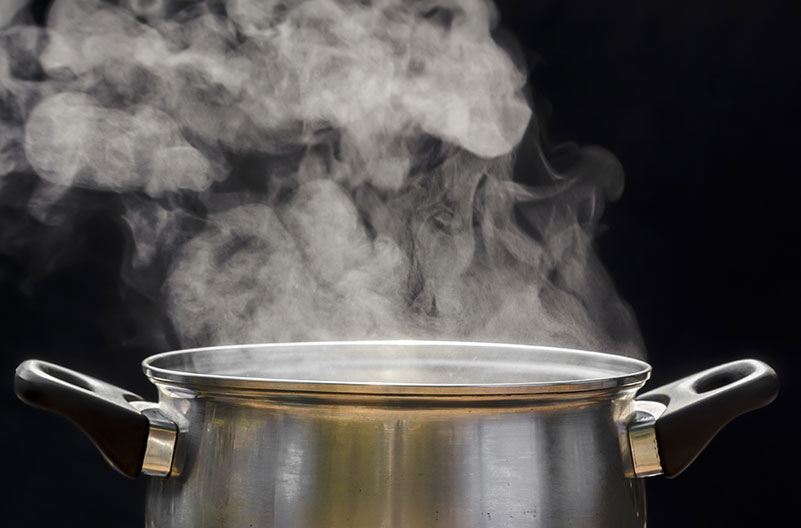Cooking beans safely


Beans and pulses are a brilliant food source - full of fibre and protein, they're nutritious, cost effective and environmentally friendly. In fact, Veg Power and The Food Foundation are launching a whole campaign focussed on Boosting Beans. But, did you know that some beans contain a toxin called Phytohemagglutinin (or PHA)? Don't panic - it's easy to cook them safely to ensure that this toxin is destroyed - just follow our guide below.
Importantly, PHA poisoning is generally NOT life threatening. Symptoms can however be unpleasant, and include nausea, vomiting and diarrhoea. Typically these start to occur within one-three hours of eating beans that contain toxins. There are no particular types of people who are more susceptible to the ill-effects of PFA, but people who are already vulnerable to gastric problems may suffer more severely.
The symptoms of PHA poisoning can be brought on by just a few beans, and the severity of symptoms can increase with the amount eaten.
The good news is, straightforward cooking destroys PHA, as long as you follow some simple rules. The amount of PHA within different types of beans varies, so the guidelines below are for red kidney beans, as these contain the highest levels of PHA. If you are cooking a different type of bean, you may want to find the specific guidelines for that type.
For dried red kidney beans: soak the beans for 12 hours in cold, clean water. Drain the water, then boil vigorously in fresh water for at least ten minutes. Getting the water to boiling point is important here, as it is the temperature that denatures the toxin. In terms of cooking the beans, they will probably need considerably longer than ten minutes to become soft and edible, we're just considering food safety here.
For tinned (canned) red kidney beans: tinned beans have been treated at ultra-high temperatures as part of their processing, so these are safe to eat straight away. However, some will be stored in brine, so we always recommend rinsing tinned beans before you eat to minimise salt levels in your food.
Famously, the issue of PHA poisoning was brought to the attention of many when slow cookers (crockpots) became popular in the seventies. Initially it was thought that undercooked meat was the culprit for many people becoming ill following a slow cooked chilli-con-carne. However, it became apparent that kidney beans, popped straight into the cooker and never reaching boiling point, were the problem. So - if you want delicious kidney beans in your chilli, either use tinned beans, or soak and boil the beans first.
Many beans - including fresh green beans - do contain PHAs, although fresh beans do not require soaking or a long cook at boiling temperatures. As previously mentioned, red kidney beans contain the highest levels of PHAs. White kidney beans also contain the toxin, as do soy, broad, pinto and other beans - but to a lesser extent.
All of these beans can be enjoyed safely as long as they are cooked properly. And that's great news, because beans really are a superfood.
If you'd like to learn more about cooking all foods safely, have a look at The Safer Food Group's training courses, available here.
Join 950,000+ learners
Explore our award winning online video based training
The Safer Food Group
Unit 2, Integrity House,
Lower Lumsdale, Matlock
DE4 5EX
Back
to top
© The Safer Food Group 2026 | Privacy policy